module 1 U 1 Friendship(整单元Revision )[上学期]
文档属性
| 名称 | module 1 U 1 Friendship(整单元Revision )[上学期] | 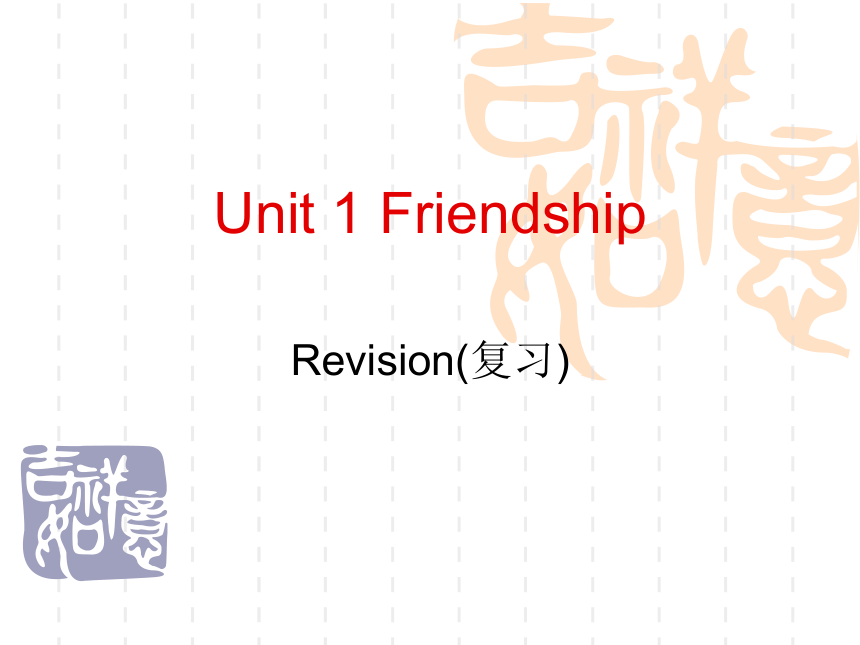 | |
| 格式 | rar | ||
| 文件大小 | 33.1KB | ||
| 资源类型 | 教案 | ||
| 版本资源 | 人教版(新课程标准) | ||
| 科目 | 英语 | ||
| 更新时间 | 2006-10-08 10:10:00 | ||
图片预览

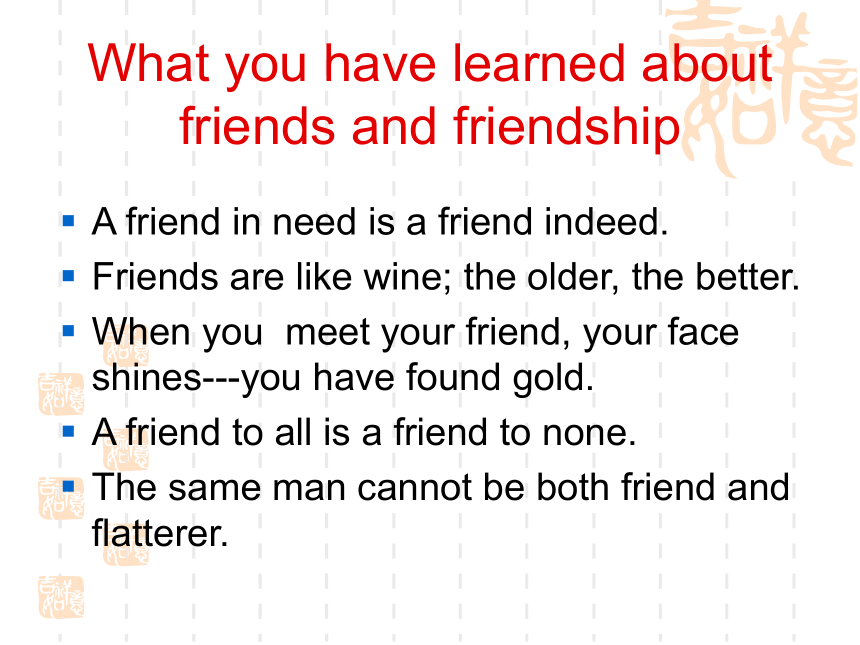
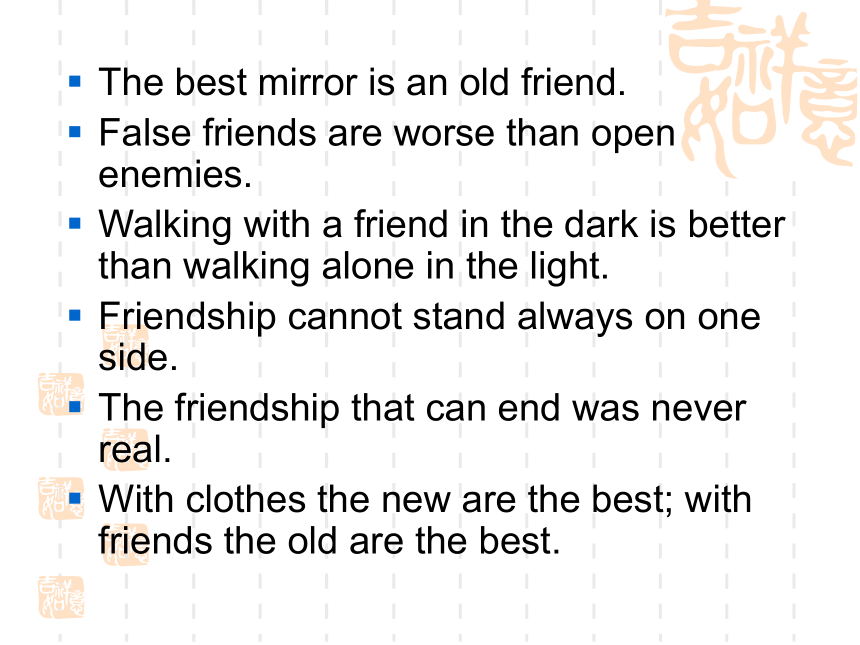
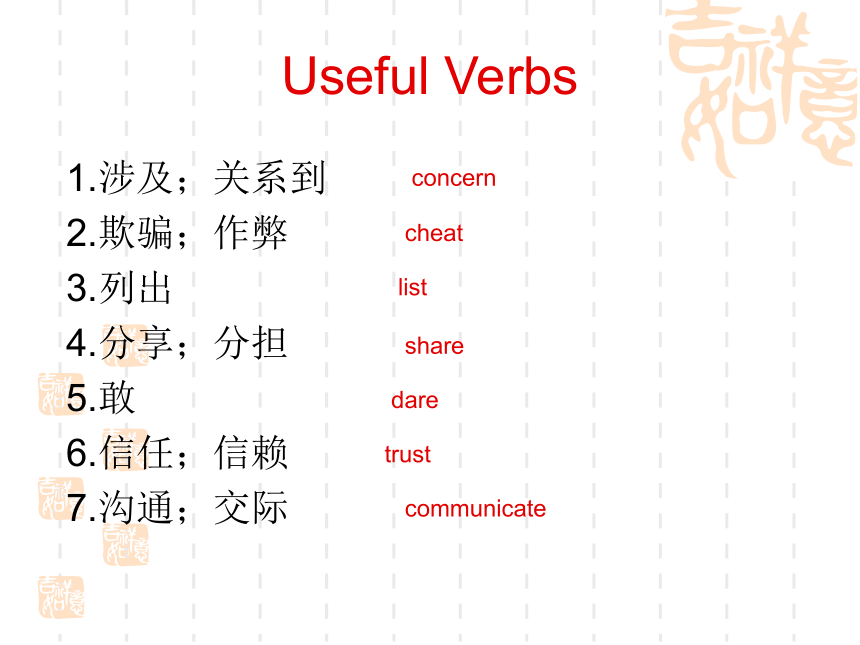
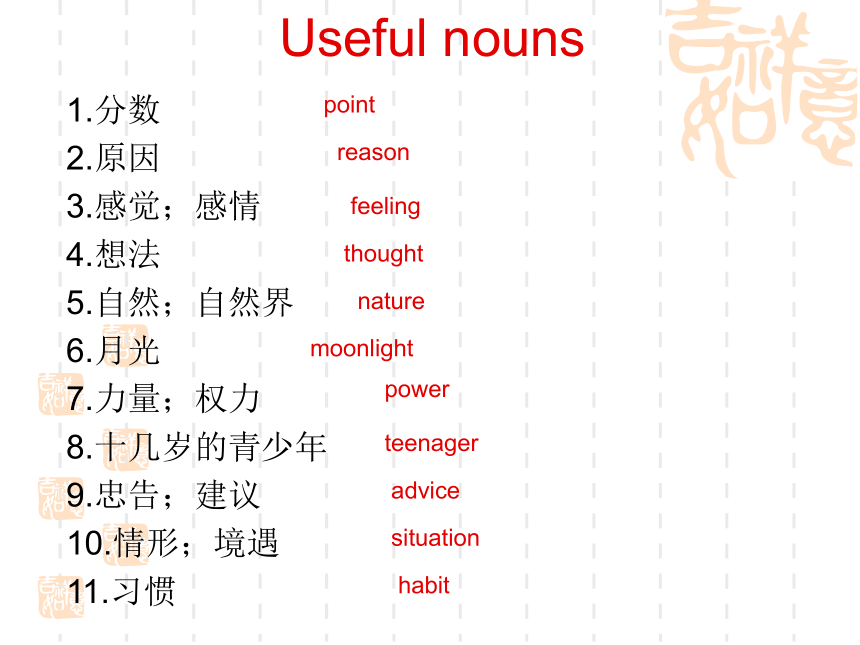
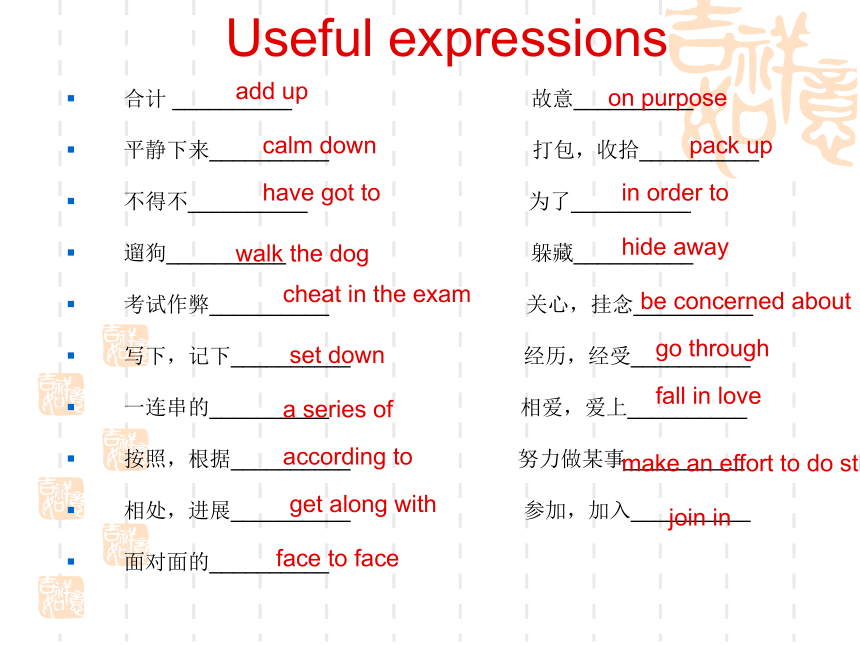
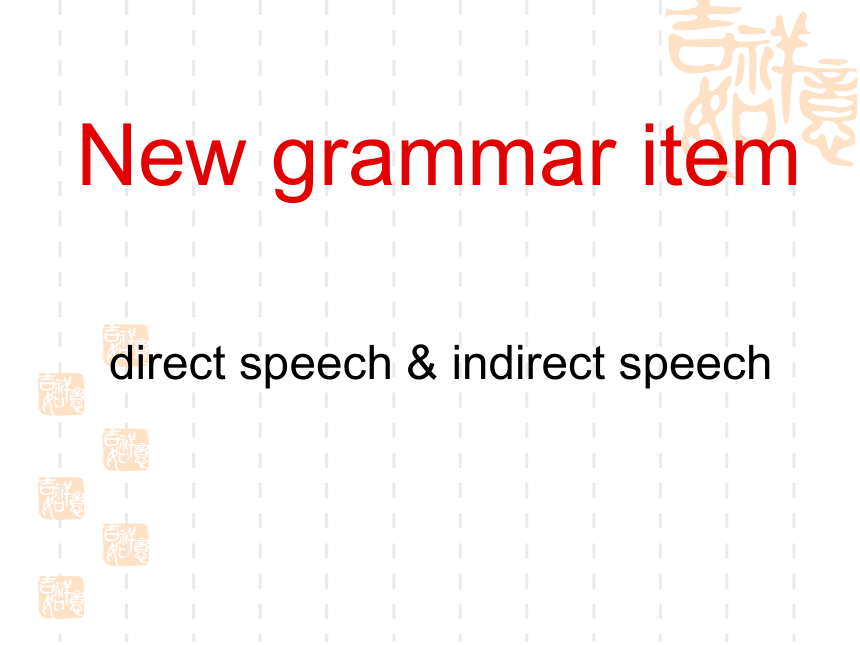
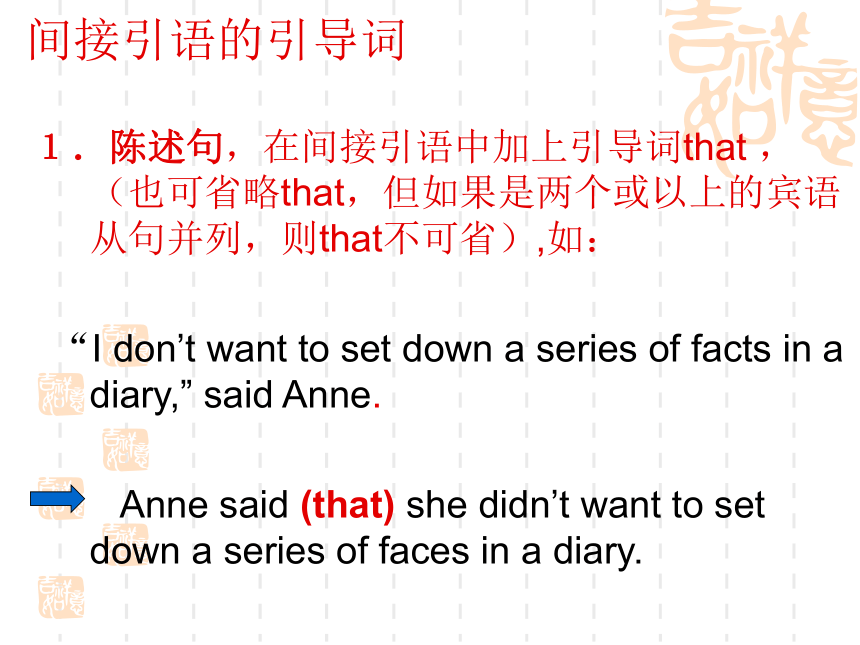
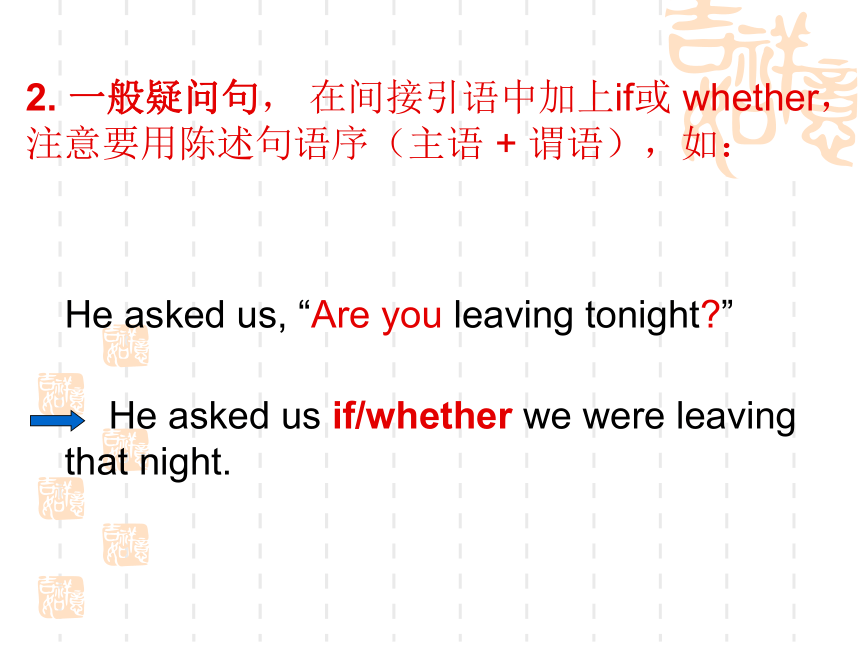
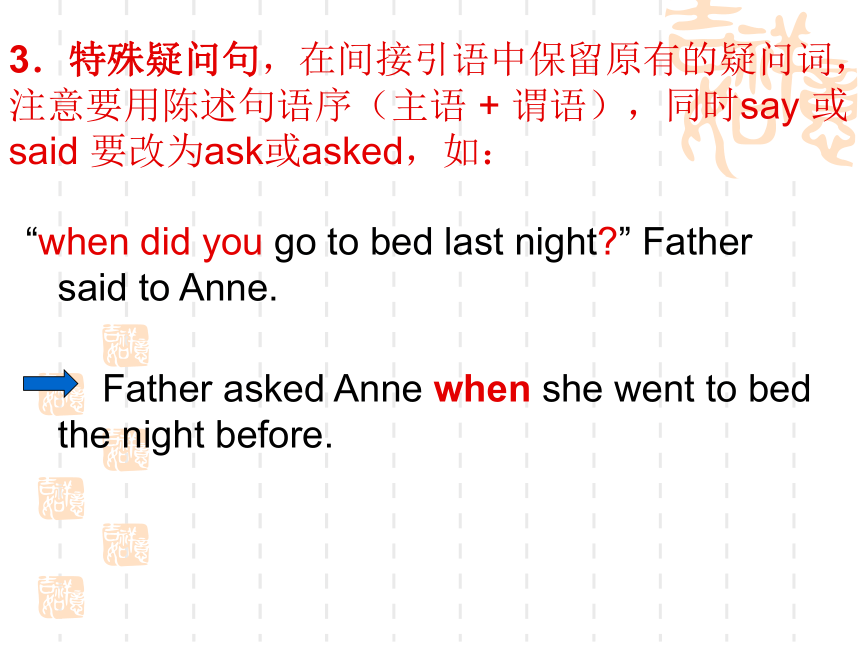
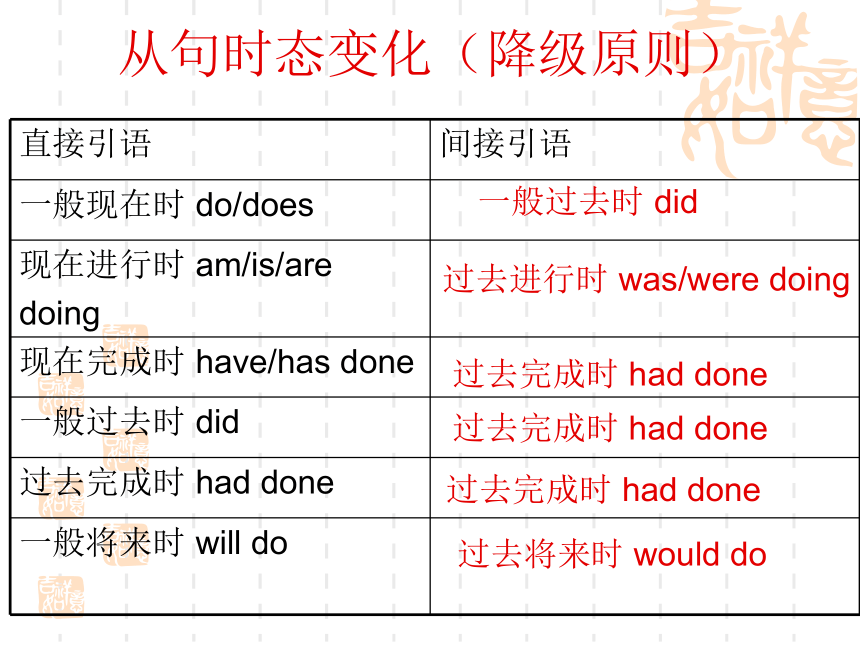
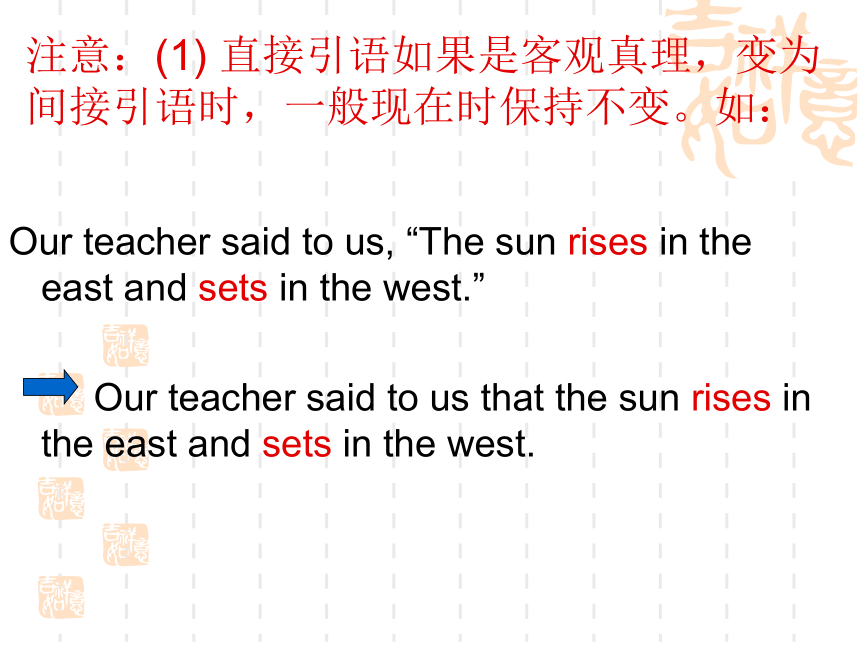
文档简介
课件32张PPT。Unit 1 Friendship
Revision(复习)What you have learned about friends and friendshipA friend in need is a friend indeed.
Friends are like wine; the older, the better.
When you meet your friend, your face shines---you have found gold.
A friend to all is a friend to none.
The same man cannot be both friend and flatterer.The best mirror is an old friend.
False friends are worse than open enemies.
Walking with a friend in the dark is better than walking alone in the light.
Friendship cannot stand always on one side.
The friendship that can end was never real.
With clothes the new are the best; with friends the old are the best.
Useful Verbs1.涉及;关系到
2.欺骗;作弊
3.列出
4.分享;分担
5.敢
6.信任;信赖
7.沟通;交际
concerncheatlistsharedaretrustcommunicateUseful nouns1.分数
2.原因
3.感觉;感情
4.想法
5.自然;自然界
6.月光
7.力量;权力
8.十几岁的青少年
9.忠告;建议
10.情形;境遇
11.习惯pointreasonfeelingthoughtnaturemoonlightpowerteenageradvicesituationhabit Useful expressions合计 __________ 故意__________
平静下来__________ 打包,收拾__________
不得不__________ 为了__________
遛狗__________ 躲藏__________
考试作弊__________ 关心,挂念__________
写下,记下__________ 经历,经受__________
一连串的__________ 相爱,爱上__________
按照,根据__________ 努力做某事__________
相处,进展__________ 参加,加入__________
面对面的__________
add upcalm downhave got towalk the dogcheat in the examset downa series ofaccording toget along withface to faceon purposepack upin order tohide awaybe concerned aboutgo throughfall in lovemake an effort to do sth.join inNew grammar item direct speech & indirect speech间接引语的引导词 1.陈述句,在间接引语中加上引导词that ,(也可省略that,但如果是两个或以上的宾语从句并列,则that不可省),如:
“I don’t want to set down a series of facts in a diary,” said Anne.
Anne said (that) she didn’t want to set down a series of faces in a diary.2. 一般疑问句, 在间接引语中加上if或 whether, 注意要用陈述句语序(主语 + 谓语),如: He asked us, “Are you leaving tonight?”
He asked us if/whether we were leaving that night.3.特殊疑问句,在间接引语中保留原有的疑问词,注意要用陈述句语序(主语 + 谓语),同时say 或said 要改为ask或asked,如:“when did you go to bed last night?” Father said to Anne.
Father asked Anne when she went to bed the night before.从句时态变化(降级原则)一般过去时 did过去进行时 was/were doing过去完成时 had done过去完成时 had done过去完成时 had done过去将来时 would do注意:(1) 直接引语如果是客观真理,变为间接引语时,一般现在时保持不变。如: Our teacher said to us, “The sun rises in the east and sets in the west.”
Our teacher said to us that the sun rises in the east and sets in the west.(2)直接引语如果有明确的表示过去时间的时间状语,一般过去时保持不变。如: “I was born in 1992,” Li Ming said.
Li Ming said that he was born in 1992 从句中人称的变化可根据此规则:一随主,二随宾,第三人称不更新。如:
He said , “I have left my book in the classroom.”
He said that he had left his book in the classroom.
She said to me , “Your English is great ”
She said to me that my English was great.从句中指示代词,时间状语,地点状语和动词的变化如:She said, “I will come here again tonight.”
She said that she would go there again that night.
He said, “I arrived yesterday.”
He said that he had arrived the day before.Language points of important sentences1.…but your friend can’t go until he/she finishes cleaning the bicycle.…
(1) not…until…直到…才…
如:做完作业后我才能去打篮球。
I can’t go to play basketball until I finish my homework.
(2) finish doing sth.做完某事。
如:他读完课文之后,试着做了些练习。
After finishing reading the text, he tried to do some exercise.2. When he/she borrowed it last time, he/she broke it and you had to pay to get it repaired.(1)get it repaired属于”get+宾语+宾语补足语”形式,过去分词done作宾语补足语, 与宾语有逻辑上的动宾关系,
如:昨天我理了头发。
Yesterday I got my hair cut3.You are taking your end-of-year exam.(1)end-of-year 为复合形容词,作定语修饰exam。注意词与词之间要用连字符连接。如:
twelve-year-old 12岁的;
100-meter-long 100米长的4…he/she should have studied, …(1) should have done(过去)本该做某事(而实际上未做),一般含有责备或批评的意思。
如:Mr. White ______ at 8:30 for the meeting, but he didn’t show up. (2004,全国卷)
A. should have arrived
B. should arrive
C. should have had arrived
D. should be arrivingA5.She and her family hid away for nearly twenty-five months before they were discovered.(1) before连词,意为“在…之前,才”,
如:他连续工作了5小时后才停下来休息。
He went on with his work for 5 hours before he stopped to have a rest.
(2) 拓展:在“It +be +时间段+before”从句中,意为“得过多久才”。如:
Scientists say it may be five or six years___ it is possible to test this medicine on human patients. (2004, 福建高考)
A. since B. after C. before D. when
c6.I wonder if it’s because I haven’t been able to be outdoors for so long that I’ve grown so crazy about everything to do with nature.(1) it is because…是一个强调句型,强调because引导的原因状语从句。意为“因为…”
如:因为他又迟到了,所以老师惩罚他.
It was because he was late again the teacher punished him.
拓展:强调句型的结构是:It is(was) + 被强调部分(主语,宾语或状语)+ that(who)… 被强调部分指人时可用that 或who,指物是只能用that ,如: 原句:I met John in the park yesterday.
It was I who (that) met John in the park yesterday.
(强调主语)
It was John who (that) I met in the park yesterday.
(强调宾语)
It was in the park that I met John yesterday.
(强调地点状语)
It was yesterday that I met John in the park.
(强调时间状语)
7.I can well remember that there was a time when a deep blue sky, the song of the birds, moonlight and flowers could never have kept me spellbound.there was a time when… “曾经一段时间”。
如:There was ______ time ______ I hated to go to school. (2004,湖北高考)
A. a; that
B. a; when
C. the; that
D. the; whenB8.But as the moon gave far too much light, I didn’t dare open a window.(1) dare具有情态动词和一般动词两种词性,在使用习惯上有如下一些特点:
1.在肯定句中的dare,dares,dared之后,不定式一般加to
(结构:dare/dares/dared to do ),
如:他什么事都敢做。
He dares to do most things.
2.在否定句和疑问句中的之后,不定式一般不加to
(结构:dare not do , Dare…do? ),
如:我们可以看出他不敢说实话。
We could see that he dared not tell the truth.
她敢把她知道的告诉他们吗?
Dare she tell them what she knows?3.在用do 或does或did构成的否定句和疑问句中,理论上要有to ,实际使用却经常省略to
( 结构:don’t/ doesn’t /didn’t dare do , Do/Does/Did …dare do?),
如:我们不敢把他这次又失败的实情告诉他.
We didn’t dare tell him that he had failed again this time.
他敢在这样一个暴风雨夜外出吗?
Does he dare go out at night in such stormy weather?
9 … it was the first time in a year and a half that I’d seen the night face to face…It is (was) the first time…that +主语+have /has done (had done)…某人第一次做某事,类似的还有“第二次,第三次…” , 注意此句型中主从句的时态对应,
如:这是他第一次来这里。
It is the first time that he has come here.
那是我们最后一次在学校见面。
It was the last time that we had met at school.10.Although I really try to talk to my classmates, I still find it hard to make good friends with them.(1) it 为形式宾语,代替后面的真正宾语不定式短语(to do sth.),形容词作宾语补足语,结构是:“find + it + adj. + to do sth.”,意为:“发现做某事…..”
如:你会发现学好英语很重要。
You will find it important to learn English well.
(2) 能用于该句型的形容词常见的有important, necessary, possible, difficult, hard, easy, useful等。HomeworkWrite down the useful verbs, nouns and expressions you have learned in Unit 1
根据以下提示用英语写一篇短文描述你的朋友周亮(Zhou Liang).
1.我的好朋友,男,16岁,班长(monitor)
2.他学习勤奋,独立完成作业(by oneself),各科成绩优良(be good at all subjects),尤其英语.
3.他为人诚实谦虚(honest and modest),乐于助人(be ready to help),耐心帮我学英语(help sb. with…patiently)
4.他喜欢音乐,爱好体育.
Friends are like wine; the older, the better.
When you meet your friend, your face shines---you have found gold.
A friend to all is a friend to none.
The same man cannot be both friend and flatterer.The best mirror is an old friend.
False friends are worse than open enemies.
Walking with a friend in the dark is better than walking alone in the light.
Friendship cannot stand always on one side.
The friendship that can end was never real.
With clothes the new are the best; with friends the old are the best.
Useful Verbs1.涉及;关系到
2.欺骗;作弊
3.列出
4.分享;分担
5.敢
6.信任;信赖
7.沟通;交际
concerncheatlistsharedaretrustcommunicateUseful nouns1.分数
2.原因
3.感觉;感情
4.想法
5.自然;自然界
6.月光
7.力量;权力
8.十几岁的青少年
9.忠告;建议
10.情形;境遇
11.习惯pointreasonfeelingthoughtnaturemoonlightpowerteenageradvicesituationhabit Useful expressions合计 __________ 故意__________
平静下来__________ 打包,收拾__________
不得不__________ 为了__________
遛狗__________ 躲藏__________
考试作弊__________ 关心,挂念__________
写下,记下__________ 经历,经受__________
一连串的__________ 相爱,爱上__________
按照,根据__________ 努力做某事__________
相处,进展__________ 参加,加入__________
面对面的__________
add upcalm downhave got towalk the dogcheat in the examset downa series ofaccording toget along withface to faceon purposepack upin order tohide awaybe concerned aboutgo throughfall in lovemake an effort to do sth.join inNew grammar item direct speech & indirect speech间接引语的引导词 1.陈述句,在间接引语中加上引导词that ,(也可省略that,但如果是两个或以上的宾语从句并列,则that不可省),如:
“I don’t want to set down a series of facts in a diary,” said Anne.
Anne said (that) she didn’t want to set down a series of faces in a diary.2. 一般疑问句, 在间接引语中加上if或 whether, 注意要用陈述句语序(主语 + 谓语),如: He asked us, “Are you leaving tonight?”
He asked us if/whether we were leaving that night.3.特殊疑问句,在间接引语中保留原有的疑问词,注意要用陈述句语序(主语 + 谓语),同时say 或said 要改为ask或asked,如:“when did you go to bed last night?” Father said to Anne.
Father asked Anne when she went to bed the night before.从句时态变化(降级原则)一般过去时 did过去进行时 was/were doing过去完成时 had done过去完成时 had done过去完成时 had done过去将来时 would do注意:(1) 直接引语如果是客观真理,变为间接引语时,一般现在时保持不变。如: Our teacher said to us, “The sun rises in the east and sets in the west.”
Our teacher said to us that the sun rises in the east and sets in the west.(2)直接引语如果有明确的表示过去时间的时间状语,一般过去时保持不变。如: “I was born in 1992,” Li Ming said.
Li Ming said that he was born in 1992 从句中人称的变化可根据此规则:一随主,二随宾,第三人称不更新。如:
He said , “I have left my book in the classroom.”
He said that he had left his book in the classroom.
She said to me , “Your English is great ”
She said to me that my English was great.从句中指示代词,时间状语,地点状语和动词的变化如:She said, “I will come here again tonight.”
She said that she would go there again that night.
He said, “I arrived yesterday.”
He said that he had arrived the day before.Language points of important sentences1.…but your friend can’t go until he/she finishes cleaning the bicycle.…
(1) not…until…直到…才…
如:做完作业后我才能去打篮球。
I can’t go to play basketball until I finish my homework.
(2) finish doing sth.做完某事。
如:他读完课文之后,试着做了些练习。
After finishing reading the text, he tried to do some exercise.2. When he/she borrowed it last time, he/she broke it and you had to pay to get it repaired.(1)get it repaired属于”get+宾语+宾语补足语”形式,过去分词done作宾语补足语, 与宾语有逻辑上的动宾关系,
如:昨天我理了头发。
Yesterday I got my hair cut3.You are taking your end-of-year exam.(1)end-of-year 为复合形容词,作定语修饰exam。注意词与词之间要用连字符连接。如:
twelve-year-old 12岁的;
100-meter-long 100米长的4…he/she should have studied, …(1) should have done(过去)本该做某事(而实际上未做),一般含有责备或批评的意思。
如:Mr. White ______ at 8:30 for the meeting, but he didn’t show up. (2004,全国卷)
A. should have arrived
B. should arrive
C. should have had arrived
D. should be arrivingA5.She and her family hid away for nearly twenty-five months before they were discovered.(1) before连词,意为“在…之前,才”,
如:他连续工作了5小时后才停下来休息。
He went on with his work for 5 hours before he stopped to have a rest.
(2) 拓展:在“It +be +时间段+before”从句中,意为“得过多久才”。如:
Scientists say it may be five or six years___ it is possible to test this medicine on human patients. (2004, 福建高考)
A. since B. after C. before D. when
c6.I wonder if it’s because I haven’t been able to be outdoors for so long that I’ve grown so crazy about everything to do with nature.(1) it is because…是一个强调句型,强调because引导的原因状语从句。意为“因为…”
如:因为他又迟到了,所以老师惩罚他.
It was because he was late again the teacher punished him.
拓展:强调句型的结构是:It is(was) + 被强调部分(主语,宾语或状语)+ that(who)… 被强调部分指人时可用that 或who,指物是只能用that ,如: 原句:I met John in the park yesterday.
It was I who (that) met John in the park yesterday.
(强调主语)
It was John who (that) I met in the park yesterday.
(强调宾语)
It was in the park that I met John yesterday.
(强调地点状语)
It was yesterday that I met John in the park.
(强调时间状语)
7.I can well remember that there was a time when a deep blue sky, the song of the birds, moonlight and flowers could never have kept me spellbound.there was a time when… “曾经一段时间”。
如:There was ______ time ______ I hated to go to school. (2004,湖北高考)
A. a; that
B. a; when
C. the; that
D. the; whenB8.But as the moon gave far too much light, I didn’t dare open a window.(1) dare具有情态动词和一般动词两种词性,在使用习惯上有如下一些特点:
1.在肯定句中的dare,dares,dared之后,不定式一般加to
(结构:dare/dares/dared to do ),
如:他什么事都敢做。
He dares to do most things.
2.在否定句和疑问句中的之后,不定式一般不加to
(结构:dare not do , Dare…do? ),
如:我们可以看出他不敢说实话。
We could see that he dared not tell the truth.
她敢把她知道的告诉他们吗?
Dare she tell them what she knows?3.在用do 或does或did构成的否定句和疑问句中,理论上要有to ,实际使用却经常省略to
( 结构:don’t/ doesn’t /didn’t dare do , Do/Does/Did …dare do?),
如:我们不敢把他这次又失败的实情告诉他.
We didn’t dare tell him that he had failed again this time.
他敢在这样一个暴风雨夜外出吗?
Does he dare go out at night in such stormy weather?
9 … it was the first time in a year and a half that I’d seen the night face to face…It is (was) the first time…that +主语+have /has done (had done)…某人第一次做某事,类似的还有“第二次,第三次…” , 注意此句型中主从句的时态对应,
如:这是他第一次来这里。
It is the first time that he has come here.
那是我们最后一次在学校见面。
It was the last time that we had met at school.10.Although I really try to talk to my classmates, I still find it hard to make good friends with them.(1) it 为形式宾语,代替后面的真正宾语不定式短语(to do sth.),形容词作宾语补足语,结构是:“find + it + adj. + to do sth.”,意为:“发现做某事…..”
如:你会发现学好英语很重要。
You will find it important to learn English well.
(2) 能用于该句型的形容词常见的有important, necessary, possible, difficult, hard, easy, useful等。HomeworkWrite down the useful verbs, nouns and expressions you have learned in Unit 1
根据以下提示用英语写一篇短文描述你的朋友周亮(Zhou Liang).
1.我的好朋友,男,16岁,班长(monitor)
2.他学习勤奋,独立完成作业(by oneself),各科成绩优良(be good at all subjects),尤其英语.
3.他为人诚实谦虚(honest and modest),乐于助人(be ready to help),耐心帮我学英语(help sb. with…patiently)
4.他喜欢音乐,爱好体育.
